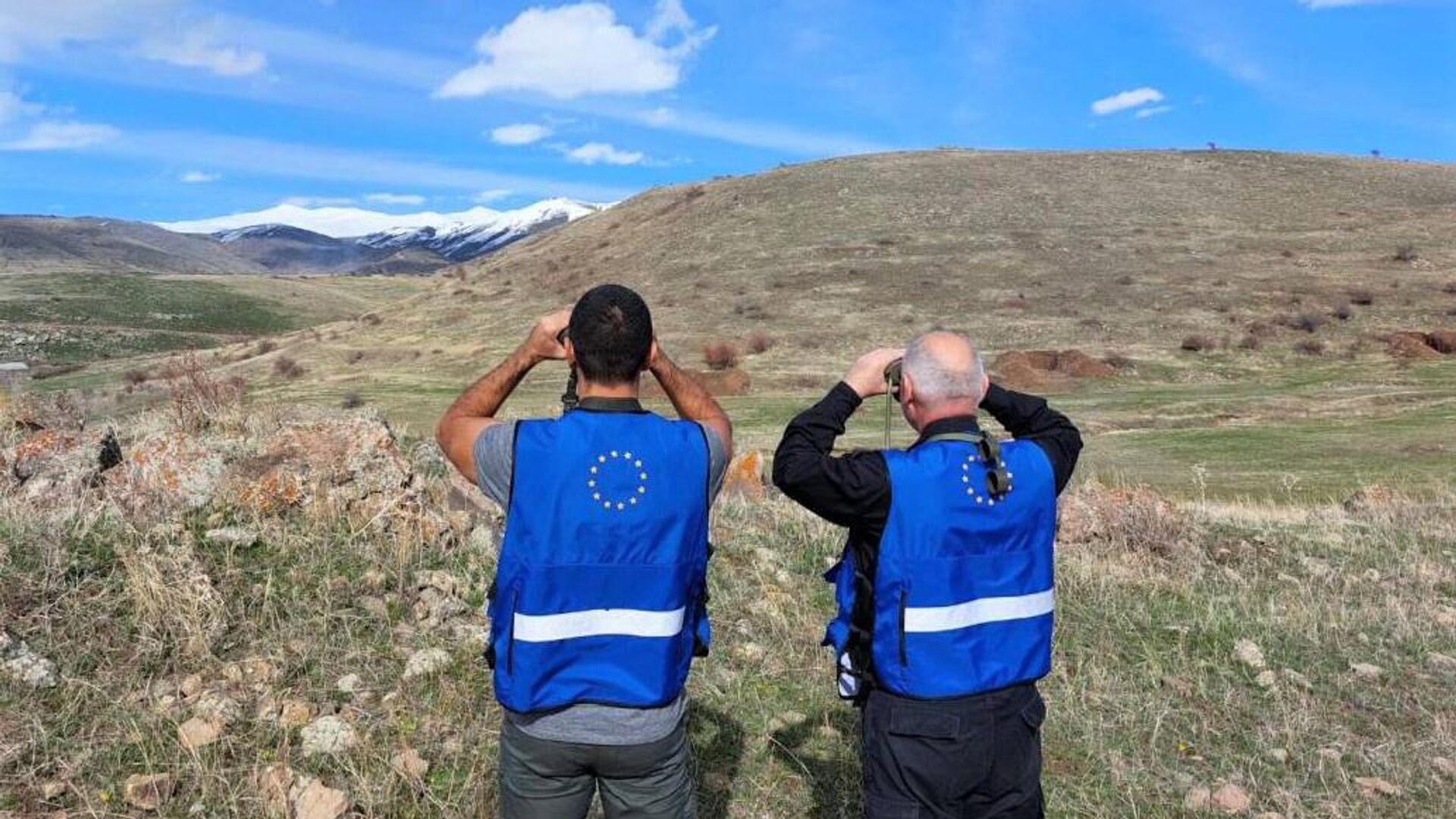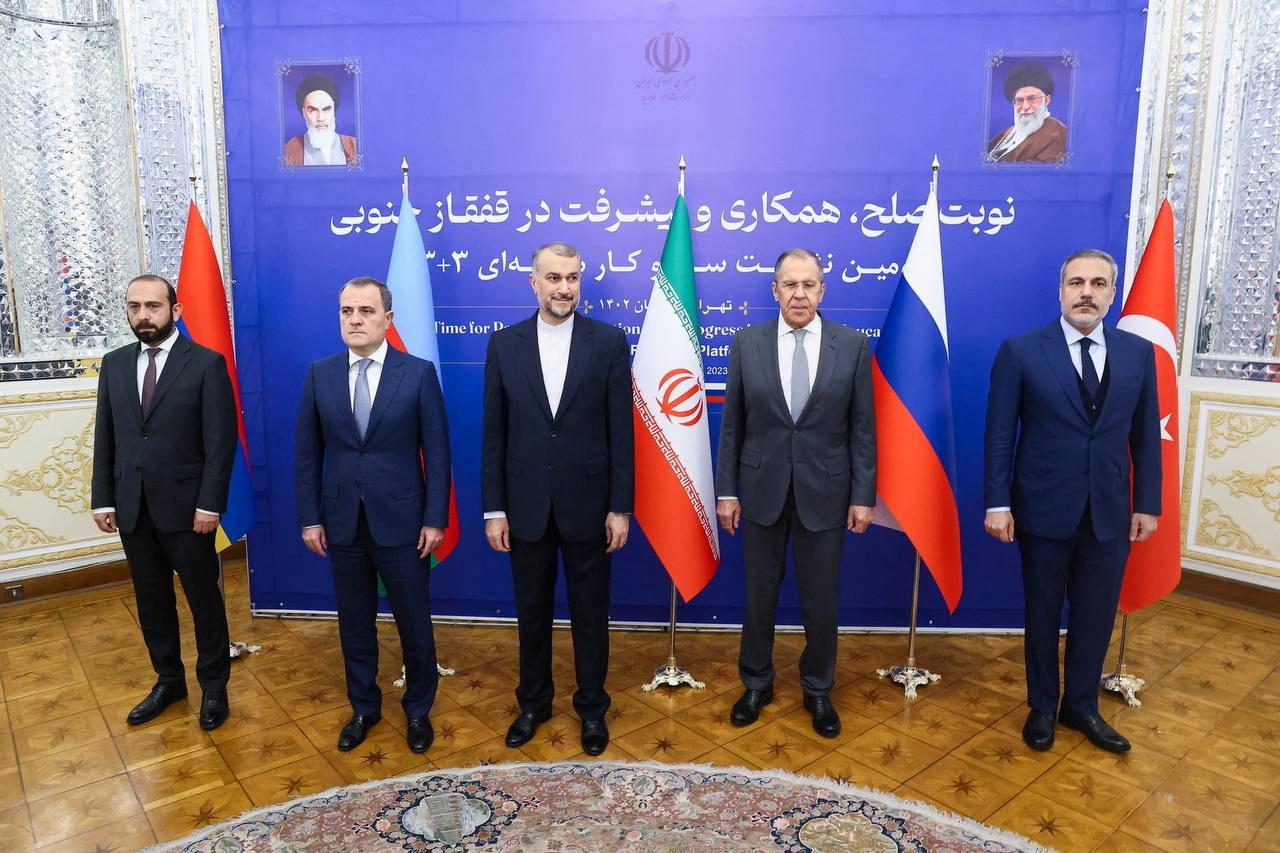Armenia as a source of regional instability When enlargement threatens shrinking
EU foreign policy chief Josep Borrell recently announced to the world the expansion of the EU civil mission in Armenia. "Armenia is keen on working more closely with the EU. We are ready to respond positively. The EU Council today decided to reinforce our civilian mission in Armenia, increasing its presence from 138 to 209 people, as a first step in the enhanced partnership," Borrell said. For its part, the Armenian government welcomed the EU decision. Armenian Foreign Minister Ararat Mirzoyan reiterated the Armenian government's readiness to deepen relations with the EU "as far as the EU considers it possible".
No sooner had our region let this news percolate than Moscow sharply reacted. Russian Deputy Foreign Minister Mikhail Galuzin expressed extreme displeasure with the EU and Armenia's move. "Its (the mission - Ed.) very appearance in Armenia is a completely useless step from the point of view of promoting the Armenian-Azerbaijani settlement. We are convinced that the expansion of the EU mission will be useless and will not give any result in terms of assistance to the Azerbaijani-Armenian settlement, the basic principles of which were worked out in November 2020 by the highest leaders of Russia, Azerbaijan and Armenia and enshrined in several trilateral joint statements," the deputy minister said.
Galuzin further stated with all candour that the EU's policy in the South Caucasus is aimed only at "forcing Russia out of the region" while using Russian achievements in the process of peaceful settlement between Armenia and Azerbaijan. According to him, the EU only brings additional tension and mistrust to the South Caucasus.

But it would be wrong to reduce the European Commission's activities to its anti-Russia bias. This is not the case. These activities are also being carried out concerning Iran and Türkiye, not to mention Azerbaijan. The Russian Ministry of Foreign Affairs spokeswoman, Maria Zakharova, said in October this year that the EU mission in Armenia "under the guise of monitoring is collecting intelligence data against Russia and Iran and preparing reports exclusively for Brussels". One of the mission's tasks is to contain Iran, which is trying to consolidate its position in Armenia, especially in the military sphere, against the backdrop of apathy in Armenian society. Iran has been told in no uncertain terms that it is superfluous here, especially against the background of Iran's military assistance to Russia in the war with Ukraine.
And finally, Türkiye. It is not immediately apparent, but the West, through the factor of Armenia, is simultaneously trying to weaken the synergy between Türkiye and the Turkic world and, if we look more widely, with the vast region of Central Asia, which, in addition to the Turkic countries, comprises Tajikistan and Afghanistan. Türkiye, although a member of NATO, is its most autonomous link. This is the only Muslim country in the union that grew up around the Christian civilisation. Neither we nor the Turks have a place in it, whether we want to or not. NATO will therefore always feel insecure about Türkiye. It could announce its withdrawal from the alliance at any time. As a means of preventing this, a belt of tension will likely be created around Türkiye. In the northwest the eternal antagonist Greece, in the south the artificially created and western-sponsored Kurdish groups, and now in the east Armenia.
It was the presence of NATO's antagonist, Russia, that allowed Türkiye to maintain its role as NATO's eastern flank. At the same time, having its strategic vision prevented Türkiye from becoming a springboard for confrontation with Russia. Erdogan's course of equal partnership with Moscow only strengthened the West's perception of the "unreliability" of its eastern ally. With the introduction of NATO into Armenia and especially Georgia, these countries will become NATO's eastern flank. It is not without reason that resentment towards Russia is cultivated from outside in both countries. And if Georgians can still be understood, given the war of 2008 and Russia's support for the separatist Abkhazia and South Ossetia, Armenia's discontent with Moscow can be called nothing but black ingratitude - which, in addition to the psychological attitudes of Armenian society, can also be explained by the propaganda of Western-sponsored media.
Thus, the very circumstances call for Türkiye, Russia, Azerbaijan and Iran to build a strong partnership in the region to prevent Armenia from becoming a Western bridgehead in the South Caucasus.

The same Borrell, referring to the EU decision to expand the mission, noted that there is a historic chance to achieve peace in the region. This historic chance has been achieved solely through the efforts of Baku and Yerevan. It has nothing to do with the EU's activities. Moreover, it is alarming that the decision to expand the EU mission in Armenia was taken after Yerevan and Baku made a step towards each other by making a breakthrough decision on the exchange of servicemen. There is reason to believe that Prime Minister Pashinyan is not as unequivocally tied to the West as is commonly believed. Under these circumstances, it is quite obvious that the West will be preparing his replacement. The question is: in the person of whom?
One thing is clear: whoever is in power in Armenia, the countries of the region must make every effort to prevent it from becoming a source of regional tension.








